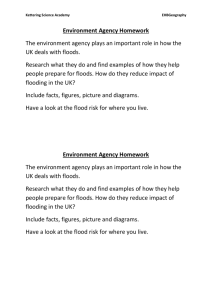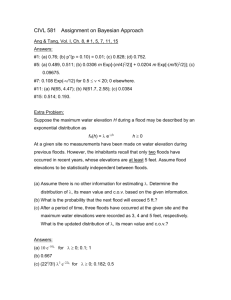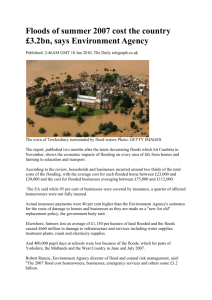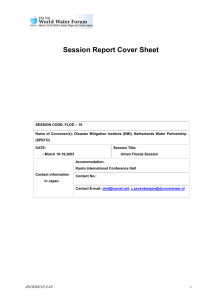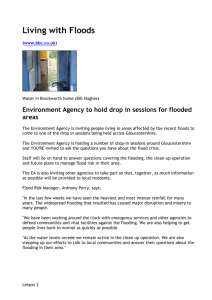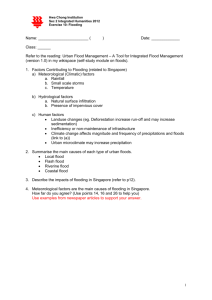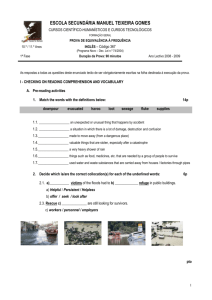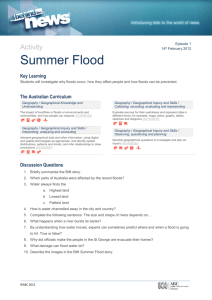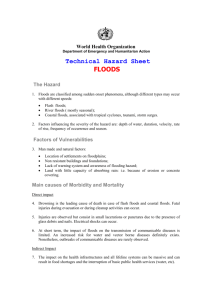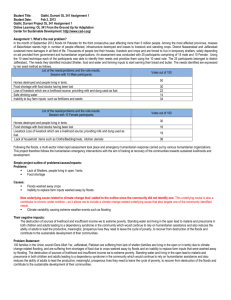Draft Session Report
advertisement
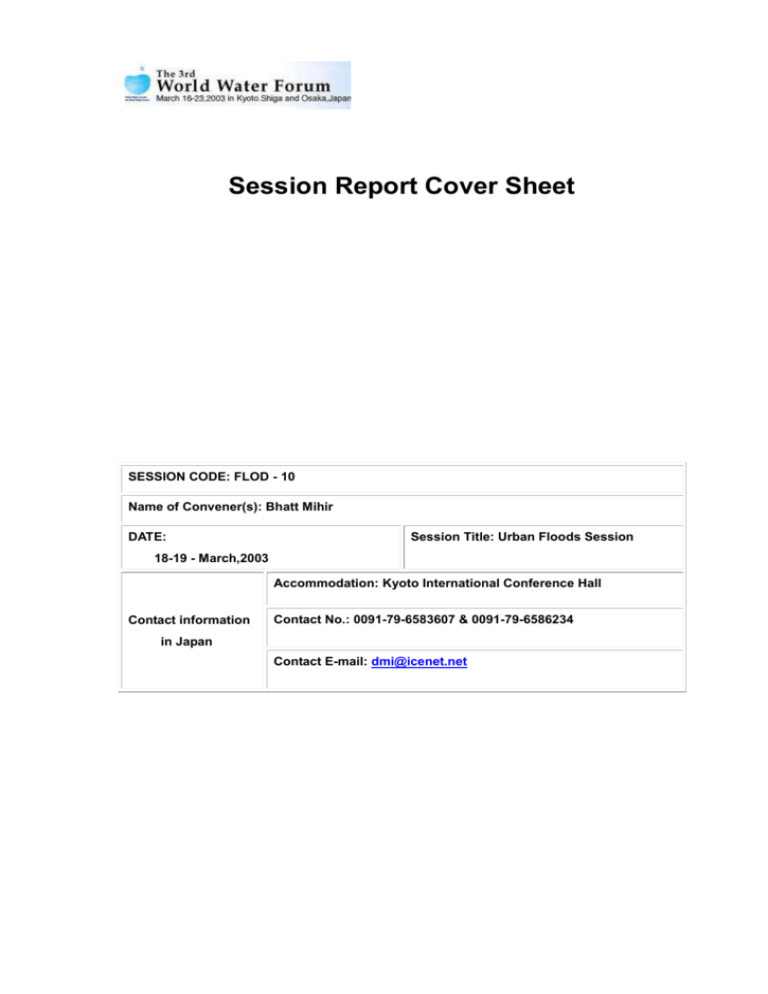
Session Report Cover Sheet SESSION CODE: FLOD - 10 Name of Convener(s): Bhatt Mihir DATE: Session Title: Urban Floods Session 18-19 - March,2003 Accommodation: Kyoto International Conference Hall Contact information Contact No.: 0091-79-6583607 & 0091-79-6586234 in Japan Contact E-mail: dmi@icenet.net Session Report SESSION CODE: FLOD - 10 Reporter/Rapporteur: Bhatt Mihir Contact E-mail : dmi@icenet.net 1. Key Issues Cities with floods are becoming an increasingly regular reality not only in developing countries but also in the developed countries. Key issues faced by city planners and disaster managers include: how citizens must learn to live with floods, not eradicate or ameliorate, but manage and harvest floods; focus of flood management must shift from large city wide hardware initiatives to the poor in cities; better flood management in cities is not only technical but also institutional and financial challenge; there is hurdly any data or documentation available from past floods for learning and informing decisions; and climate change will only call for more adaptive mitigation measures in coming years. 2. Actions The participants proposed a long-term process—ranging upto two years—of series of actions to promote global learning. The process is being developed by DMI, NWP, IFNET and others through ongoing interaction, exchange visits, idea development clinics and consultations in April, August and November 2003. The proposed process includes a global mapping of issues and experience of mitigating disaster risks of floods in cities, a series of community and stakeholder consultations on setting priorities, matching city plans with community plans, and building new North-South information and joint analysis links and action-research demonstration projects. 3. Recommendations Floods and Cities is understudied area by water sector experts as well as urban planners, calling for more city specific flood data and solution based research. Main issues recommended for further study and research as well as direct action by local authorities can be clustered into the following categories: (a) water policies must integrate river basin planning with urban flood risk management planning; (b) integrated water resource management must include floods and droughts, both in urban and rural areas; and (c) top down, expert driven and project focused city plans must be matched with bottom up, consultative, community driven ongoing action planning. In addition to these three areas it is also recommended to start building links between, to start with, European and Asian cities, water experts, business, and NGOs to explore and experiment ways of promoting global learning for better flood risk mitigation measures. 1
